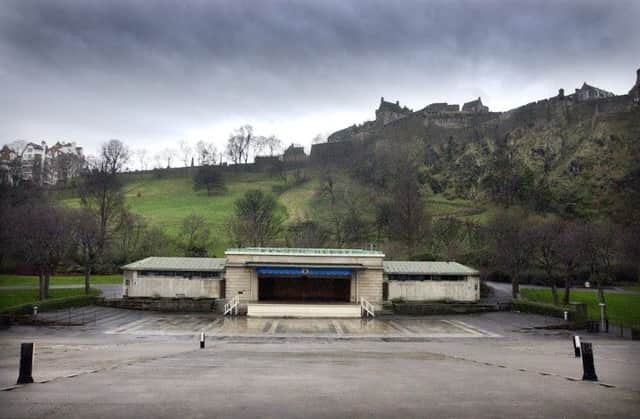Edinburgh in search of vision for arts future


The biggest ever survey of artists, venue operators, promoters and event organisers is to be carried out over the next few months to identify the city’s main drawbacks, as well as its major selling points.
Arts enthusiasts and regular festival-goers will also be asked to help shape a long-term vision for the city to raise its game internationally and plug a host of gaps in its existing infrastructure, against a backdrop of public sector cuts.
Advertisement
Hide AdTwo major summits are to be held, one next month and the other in February, with the aim of drawing up recommendations which the city council will be asked to formally adopt.
Although the local authority, which convened a “cultural charrette” two years ago in a bid to kick-start a series of new cultural projects across the city, has been involved in early talks on the initiative, it is being masterminded by some of the city’s leading cultural institutions, including the Fruitmarket Gallery, the Usher Hall, the Playhouse theatre and the Edinburgh International Book Festival.
CONNECT WITH THE SCOTSMAN
• Subscribe to our daily newsletter (requires registration) and get the latest news, sport and business headlines delivered to your inbox every morning
Plans for the project, which aims to identify a series of “Desire Lines” for the cultural sector by the spring, have been drawn up against a background of growing discontent about the level of restrictions over live music events, the loss of long-standing venues and audiences being lured to Glasgow by venues such as the vast Hydro arena.
A series of high-profile cultural projects have either been stalled or failed to get off the starting blocks over the last decade, including replacing the ageing Ross Bandstand in Princes Street Gardens; identifying new long-term homes for the Traverse Theatre, the Filmhouse cinema and the Scottish Chamber Orchestra; re-opening Leith Theatre after several decades, and finding a new use for the former Royal High School on Calton Hill.
Hopes of a new multi-purpose arts venue on the city’s waterfront were scuppered by the economic downturn and the scaling back of the city’s troubled tram project, while plans for a major indoor arena near Edinburgh Airport, which private sector companies were encouraged to develop, also came to nothing.
Advertisement
Hide AdThe Scotsman critic and commentator Joyce McMillan is hosting the first summit next month at Summerhall, which will feature a series of “provocations” from leading arts experts, with an open invite extended to anyone with an interest in arts and culture in the city. Nick Barley, director of the Book Festival, said: “We want people to come along and tell us what the city could be and what they would like. The challenge would obviously then be for us to find the money to deliver it.
“We are under no illusions; budgets are going to be tight, but at the moment culture represents around 3 per cent of the city council’s budget. What percentage of the city’s reputation comes out of culture? It’s probably around 90 per cent. Our job is to make the case for culture as part of this city’s future.
Advertisement
Hide Ad“We think we’re embarking on something which probably hasn’t been done before anywhere in the world. It’s an attempt to involve the whole city in the creation of a cultural policy.
“A few of us in the cultural scene have suggested that rather than a policy being simply created by the council and us having to find a way to deliver it, we can be involved in the creation of ideas of what the city can be culturally, and then the council can build out of that.
“We think that if we involve creative and culture producers, as well as people in the city who use culture, then we might end up with a really good thing and that other cities may be able to use the same model in future.”
Donald Smith, head of Traditional Arts and Culture Scotland, said: “The timing is really important for this.
“Everybody knows there are big challenges for Edinburgh and Scotland at the moment, but also big opportunities. It’s an ideal time for the city council and all the creatives, artists, organisations and other legitimate interested to get together to discuss what are our ambitions, what is our vision and how do we work together to achieve it.
“The idea is that the end outcome is not some huge, new voluminous piece of documentation, but a straight to the point setting out of objectives for the next few years that everyone can get behind.”
SCOTSMAN TABLET AND IPHONE APPS